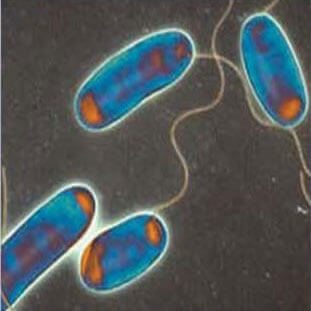 It is important for industrial sites which use a lot of water to consider a comprehensive Legionella control regime by seeking a Legionella control company with training services, to allow competent onsite risk assessments and procedures to be put in place to control the growth of Legionella in water systems. Of course taking the matter of control into your own hands is not for all sites and a mix of training and or solely relying on the services of an accredited Legionella control specialist can be the better option a good water treatment company will have a range of products and services for legionella control in water systems but always look for those who specialise in Legionnaires Disease prevention.
It is important for industrial sites which use a lot of water to consider a comprehensive Legionella control regime by seeking a Legionella control company with training services, to allow competent onsite risk assessments and procedures to be put in place to control the growth of Legionella in water systems. Of course taking the matter of control into your own hands is not for all sites and a mix of training and or solely relying on the services of an accredited Legionella control specialist can be the better option a good water treatment company will have a range of products and services for legionella control in water systems but always look for those who specialise in Legionnaires Disease prevention.
Because there is a significant risk to public health associated with Legionnaires’ Disease and Legionellosis, control of legionella bacteria is regulated by health and safety law in the UK and many other countries. In the UK we cover it within COSHH regulations and ACoP L8.
To prevent an outbreaks you must understand the a four step chain of events which need to take place for someone to catch Legionnaires’ disease and which provide the basis of assessing and minimising the risk. If this chain is broken at any point you will prevent Legionnaires’ disease.
Firstly you must have a water system contaminated by legionella bacteria, if you are legionella free your risk is gone but you should not be complacent that your situation won’t change. There are certain sources of water which if untreated upon entering your systems are likely to contain legionella bacteria such as river or canal water. Even treated incoming water could still contain the bacteria and you should assume all water systems will become contaminated by some level of legionella at some point.
Secondly while it can be almost impossible for a water system to be prevented from contamination with even low levels of legionella you can prevent growth to dangerous levels which is where legionella control measures come in to hinder the bacteria multiplying. These control measures will differ system to system. Domestic prevention measures could be making sure hot water remains hot and cold water cold and no instances of warm water conditions are allowed to legionella to grow. For cooling towers a chemical water treatment programme should be observed but in all cases an aim to avoid stagnant water conditions should be made and to keep water systems clean and free of build ups where bacteria can grow.
Thirdly, Legionella bacteria can be numerous within your system and pose no risk, but only if your system produces no aerosol, the spraying of tiny water droplets into the air. Should these be breathed in by workers or the general public the risk is high there will be an outbreak. A legionella risk assessment can consider whether there is a potential for aerosols to be produced during regular or irregular usage irregular for example being during maintenance. The risk can be reduced by preventing aerosol but in most cases and especially domestic shower situations where this is impossible control of the bacteria is the best method preventing multiplication.
Fourthly and finally, the bacteria must be inhaled by a susceptible person in order to cause Legionellosis. A persons susceptibility will vary such as gender, men are 2 – 3 times more likely to be overcome by the bacteria than women, a person aged over 45 are more susceptible and existing poor health and conditions are also likely to have an impact in increasing likelihood the bacteria will take hold in their system. These factors will be considered in a good risk assessment as to who could likely come in contact with the aerosol and impact the extent of control measures recommended.
Feedwater Ltd has vast experience in legionella control and were indeed working on the prevention of Legionnaires’ Disease before most people had even heard of it. Feedwater are the only UK water treatment company with an in-house UKAS-accredited laboratory for legionella testing and analysis and are founder members of the Legionella Control Association (LCA) when it was established as the Code of Conduct Association in 1999.
Contact us for more details on our products and services.




